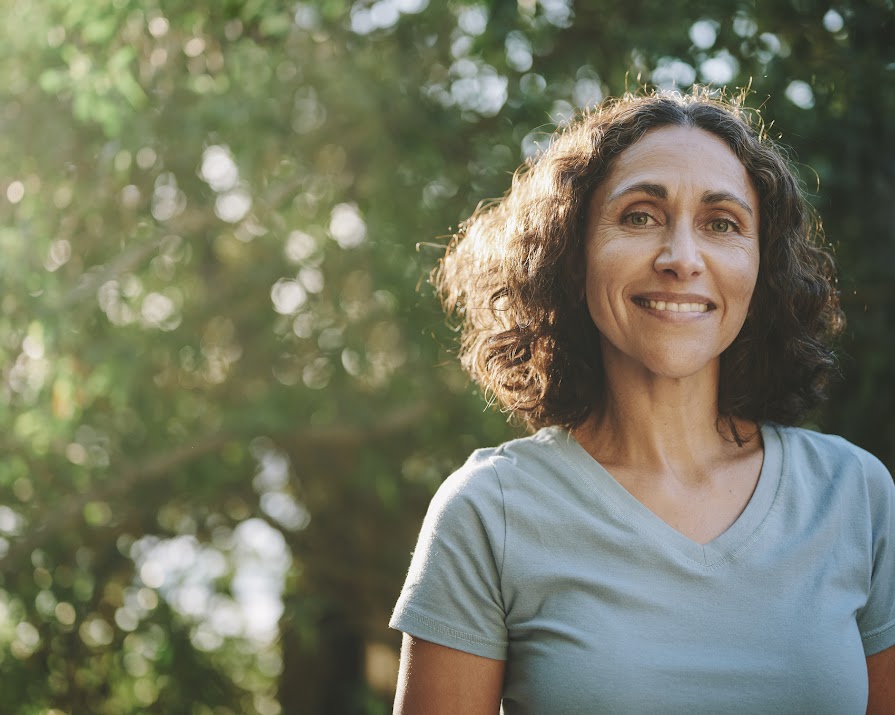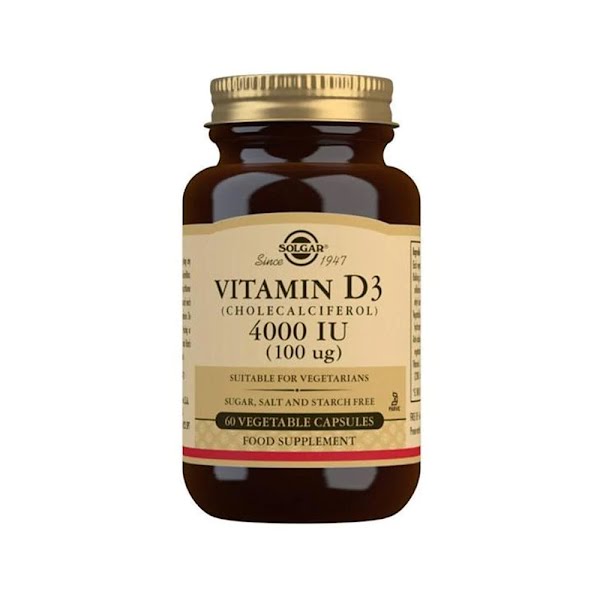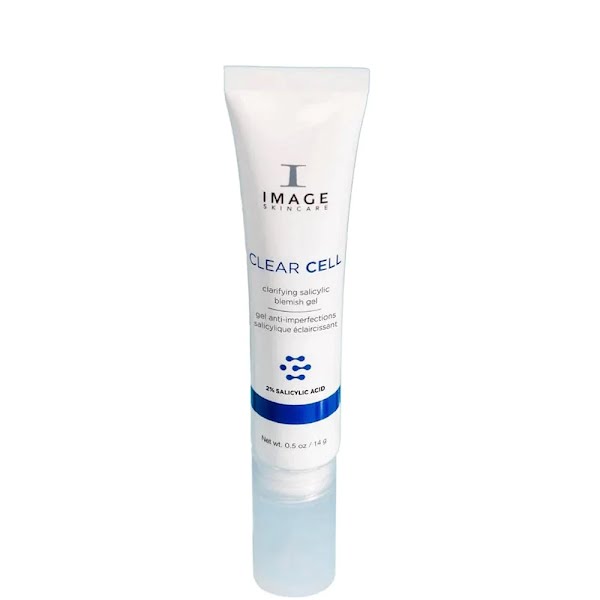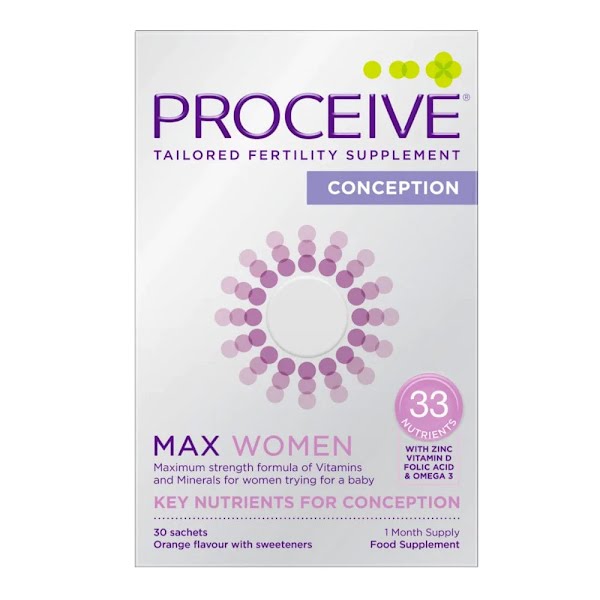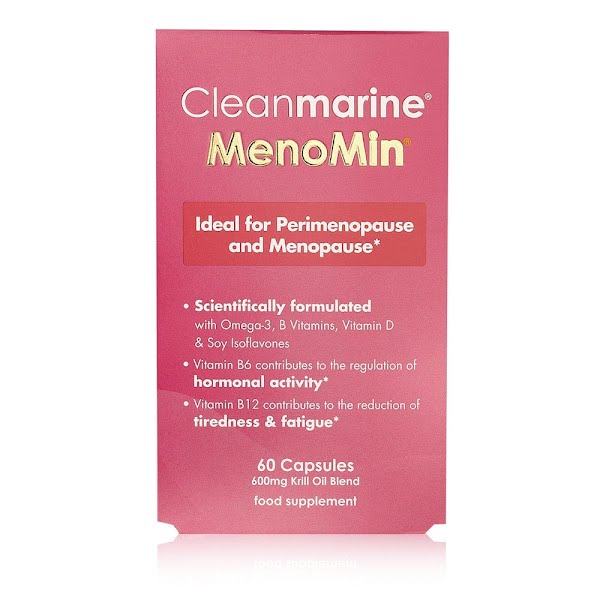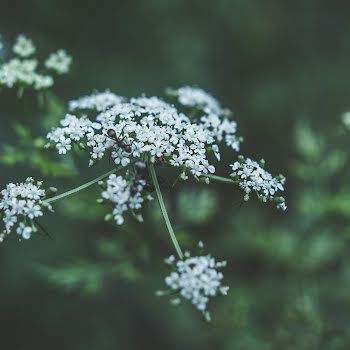
Sponsored
Women’s Health 101: From puberty to menopause, here’s what can help
Sponsored By

By Victoria Stokes
03rd Nov 2023
03rd Nov 2023
Sponsored By

From difficult periods and hormonal skincare woes to conception and the menopause, our healthcare concerns change as we age. Here's how to get ahead, and stay healthy.
Women’s health. It can be a bit of a rollercoaster.
From difficult periods and hormonal skincare woes to conception and the menopause, our healthcare concerns change as we age, and often it can feel as though you’ve only gotten to grips with one hormonal issue before you’re navigating another one.
That’s why we’ve teamed up with the experts at Meaghers Pharmacy to find out what you can expect at every age and stage as a woman, and how you can get ahead of your symptoms.
Early life: Your teens and early 20s
Difficult periods
Your teens and early twenties are often a time of self-discovery. They can also be pretty rough in terms of hormones.
“During puberty, hormonal fluctuations can be erratic, leading to irregular periods, heavy bleeding, or even missed cycles – and these hormonal changes can persist into a woman’s early twenties,” explains GP Dr Gabrielle McCauley.
“Hormonal fluctuations can also lead to mood swings, irritability, bloating, and breast tenderness during the menstrual cycle,” she adds. It’s a fun time all around.
The good news? There’s lots you can do to manage period symptoms that are less than ideal. First up, keep a record of your menstrual cycle, Gabrielle recommends. It can help you identify patterns and predict when symptoms may occur.
Next, make a few lifestyle adjustments. Maintaining a balanced diet is key and Gabrielle advises eating plenty of fruits, vegetables, whole grains and protein while cutting back on pro-inflammatory foods like dairy and seed oils.
Don’t forget to cut yourself some slack too! Gabrielle says it’s a good idea to tweak your routine to accommodate your symptoms when you need to. She recommends planning extra rest, relaxation, and self-care during the times of the month you feel your most ‘bleurgh’.
Finally, a Vitamin D supplement could bring your hormones back into balance. “Maintaining good vitamin D levels is essential for hormone balance. It helps prevent generalised aches and pains, improving energy levels and boosting mood,” Gabrielle explains.
Solgar Vitamin D3 4000 IU 100ug Vegetable Capsules, €20.95
Acne
It’s not just erratic periods you might have to contend with in your teens and early twenties, but problem skin as well.
Acne can be the result of hormonal fluctuations, hair follicle inflammation, and an ineffective skincare regime (to name a few).
While making a few tweaks to your diet can help (like the ones mentioned above), creating a personalized skincare routine should be your first-line defence.
No matter your skin type, a gentle regime is always best.
“Avoid using soaps and toothpaste on the skin,” Gabrielle warns. “This upsets the natural balance of the microbiome of the skin so that it cannot keep bad bacteria at bay. It also strips the skin of its natural hydrolipid barrier.”
Instead, incorporate gentle chemical exfoliants into your routine –they help to unclog pores. Gabrielle recommends Lactic Acid and Salicylic Acid, but fair warning, these are powerful skincare ingredients, so make sure to build up your tolerance to them.
Image Clear Cell Clarifying Salicylic Blemish Gel, €47.00
Somewhere in the middle: Your late 20s to age 40
Pre-conception & conception
If you’re thinking about starting or expanding your family at this life stage, it can be a pretty exciting time. But if you’re worried about your reproductive health, it can also be pretty nerve-wracking.
Dr Fiona Macrae from The Marion Gluck Clinic says before the age of 35 most women can expect to conceive within one year of trying. After 35, fertility starts to decline more rapidly – but try not to let that scare you.
It doesn’t mean you won’t ever conceive, just that conception could take a bit longer and you’ll be more closely monitored for complications if you do get pregnant.
There’s lots you can do to boost your chances of conceiving and improve your overall health and wellbeing in this age bracket.
Fiona says reproductive health is a broad term encompassing everything from physical health to mental wellbeing, and it’s a good idea to prioritise both. For her, that means incorporating healthy habits like exercise, eating a balanced diet, drinking lots of water, and getting plenty of rest.
Pre-pregnancy and during your pregnancy, Fiona says your doctor might recommend increasing your intake of folic acid. This is because – fun fact time – during pregnancy your body requires 10 times more folate to support the growth of a healthy baby.
Proceive Max Women – Fertility Supplement 30, €54.95
Ultimately, whether you’re trying to conceive or are already pregnant, one of the best things you can do for your health is manage your stress levels. She recommends therapy, yoga, or mindfulness exercises.
Endometriosis
Endometriosis affects an estimated 10-15% of women of reproductive age and can cause a range of symptoms, including pelvic pain, painful periods, and fertility issues.
Although there is no cure for endometriosis, Fiona says there are many strategies you can use to manage the symptoms and reduce the severity of the condition.
“The first step in managing endometriosis is to create a comprehensive healthcare plan with your healthcare provider. It’s important to learn as much as you can about endometriosis and how your body reacts to the condition,” she says.
Medications are often an important part of the treatment for endometriosis. “Over-the-counter pain relievers, such as ibuprofen, are sometimes used to help with cramping, while hormonal treatments, such as oral contraceptives can be used to reduce the amount of endometriosis growth,” Fiona explains.
Don’t skip the basics. Fiona says taking regular exercise, eating a healthy diet, getting adequate sleep, and learning to manage stress can make your symptoms more manageable too.
Polycystic Ovarian Syndrome (PCOS)
Another hormonal disorder that’s usually diagnosed in your late 20s and 30s is PCOS. The exact cause is unknown, but genetic factors, as well as insulin resistance, obesity, and inflammation, are thought to contribute to its development.
The most common symptom? Irregular periods – you can expect your period to be infrequent or heavy. Add to that, you may notice excess hair growth, alongside all the common hormonal problems like acne, weight gain, mood swings and fatigue.
“Women with PCOS are more likely to develop diabetes and cardiovascular disease, and they are also at an increased risk of developing endometrial cancer,” Fiona adds.
That makes managing it all the more important. According to Fiona, eating a nutritious, balanced diet and exercising regularly are crucial for reducing symptoms associated with PCOS.
“Eating lean proteins, plenty of veggies, whole grains, and healthy fats, while taking regular physical activity like walking, cycling and swimming can help regulate hormone levels,” she explains.
Dietary supplements can be beneficial too. Wondering which ones you should stock up on? Fiona says Inositol has been found to reduce symptoms of PCOS, while fish oil supplements can reduce inflammation and lessen the risk of other health issues associated with the condition.

Minami MorEPA Platinum Smart Fats + D3 60 Softgels, €46.30
Later in life (Early 40s and beyond)
Peri-menopause
Whether you’re looking forward to life without periods or dreading your child-bearing years coming to an end, this phase of life signals ‘the change’, and peri-menopause will be the first clue that the next chapter of your life is about to begin.
The trouble with peri-menopause? It has over 50 recognised symptoms so it can be tricky to spot. Women’s health expert Dr Sarah Jenkins says every woman’s experience will be different, but some common symptoms include irregular periods, hot flashes, mood swings, and weight gain.
Sarah recommends keeping a diary to get ahead of your symptoms. “Use an accredited symptom checker so you can track your symptoms,” she suggests.
“This helps your doctor or menopause nurse understand your symptoms. As you have presented with a list of evidence, this helps them prescribe treatment.”
As well as eating a well-balanced diet, Sarah says supplements can help during this transition. She recommends taking Vitamin D and a good multivitamin every day.
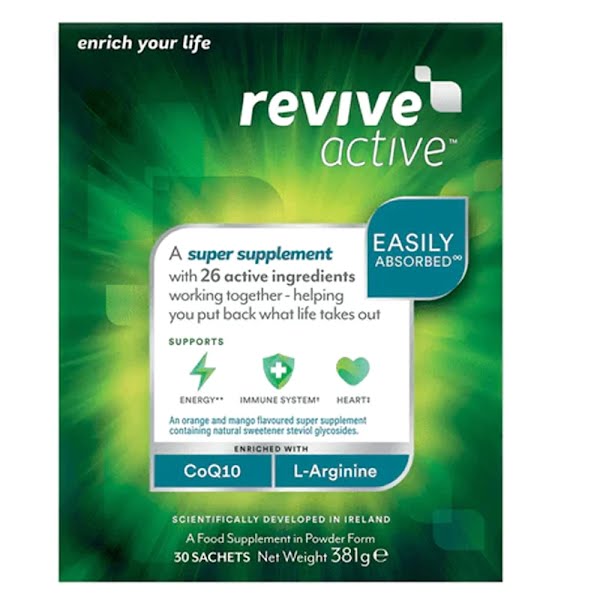
Revive Active Health Food Supplement 30 Sachets, €59.95
If your schedule is more than a little chaotic, you should start thinking about slowing down. “Cortisol – the stress hormone – has a known effect on your hormones, so finding ways to better manage stress is crucial,” Sarah notes.
Menopause
If you haven’t had a period for 12 months, then congratulations, you’re officially menopausal. But don’t crack open the bubbly just yet.
Sarah says alcohol intake can make menopause symptoms worse so you might want to think about reducing your intake to 14 units a week or less.
Weight-bearing exercises can be a great way to stay fit and healthy during this change too. As well as helping with mental health issues like anxiety and depression which are common during menopause, weight-bearing exercises improve other age-related issues like thinning bones, aches and pains, and declining mobility.
Ultimately though, if your symptoms are becoming too much, it’s important to visit your GP, where you may be assessed for HRT.
“The sooner you get assessed for HRT, by presenting your own evidence of symptoms, the sooner you replace the lack of hormones which is causing all the symptoms,” Sarah explains.
Cleanmarine Menomin 60 Capsules, €29.99
Post-menopause
You’ve navigated ‘the change’ and come out the other side. What can you expect now? The most common thing Sarah says she treats women in this bracket for is urine leaking.
“It is a silent non-disclosed shameful symptom. Why? Because we have been gaslighted for generations to believe this is normal for women,” she notes. “So many of my patients believe that it is an old lady symptom.”
Cutting back on caffeine – a known diuretic – may help. Upping your intake of foods like lentils, apples, and soy, which contain compounds called Phytoestrogens (these mimic the action of oestrogen in the body, FYI) could bring relief too.
However, Sarah says, in some cases medical treatment will be required.
Life after menopause can feel like a huge shift and it can herald lots of changes, both mental and physical.
“Some of the main concerns post menopause are thin brittle bones, loss of elasticity to the skin, chronological ageing and change in appearance having a negative psychological impact,” Sarah notes.
She says one of the less talked about issues that some women struggle with is not feeling sexy anymore. “This is because we’re missing the hormones that make us feel good in our own bodies,” she explains.
HRT, if you’re able to take it, can put the pep back in your step, but finding other outlets that empower you to feel your best is also key.
Always consult with your doctor or pharmacist before beginning a new supplement, particularly if you are on medication or have an underlying health condition.
Meaghers Pharmacy is a leading pharmacy with 9 Dublin-based locations and a thriving online store at meaghers.ie. Speak to the Meaghers teams today for best advice and support around health & wellness, skincare and beauty.











